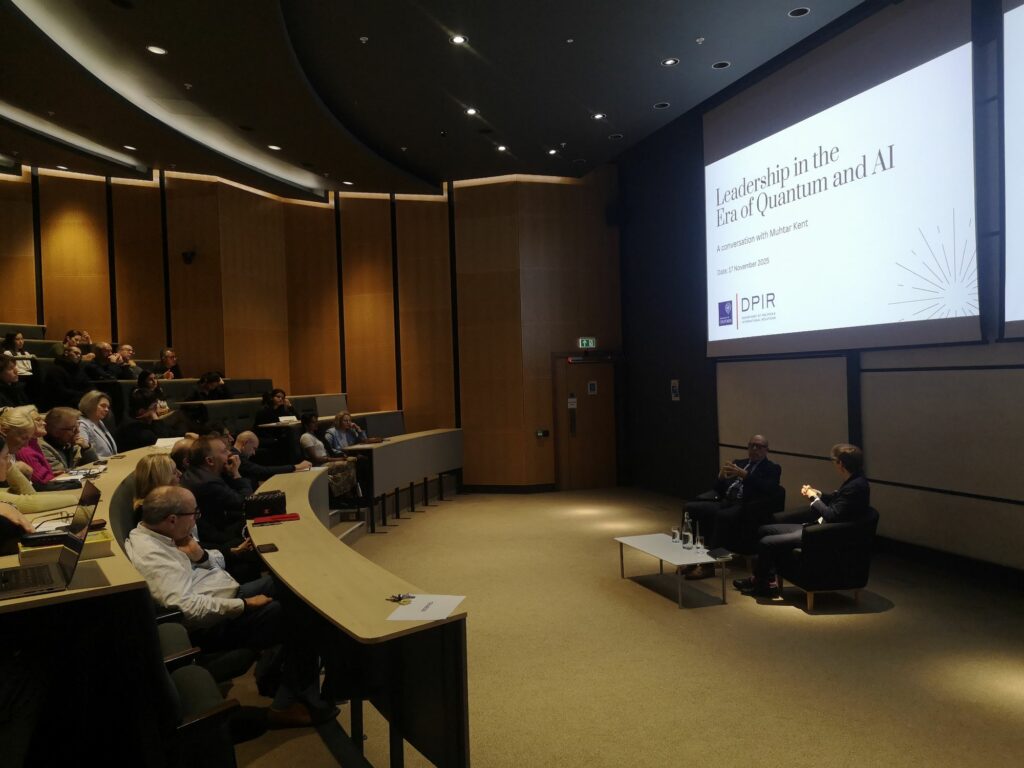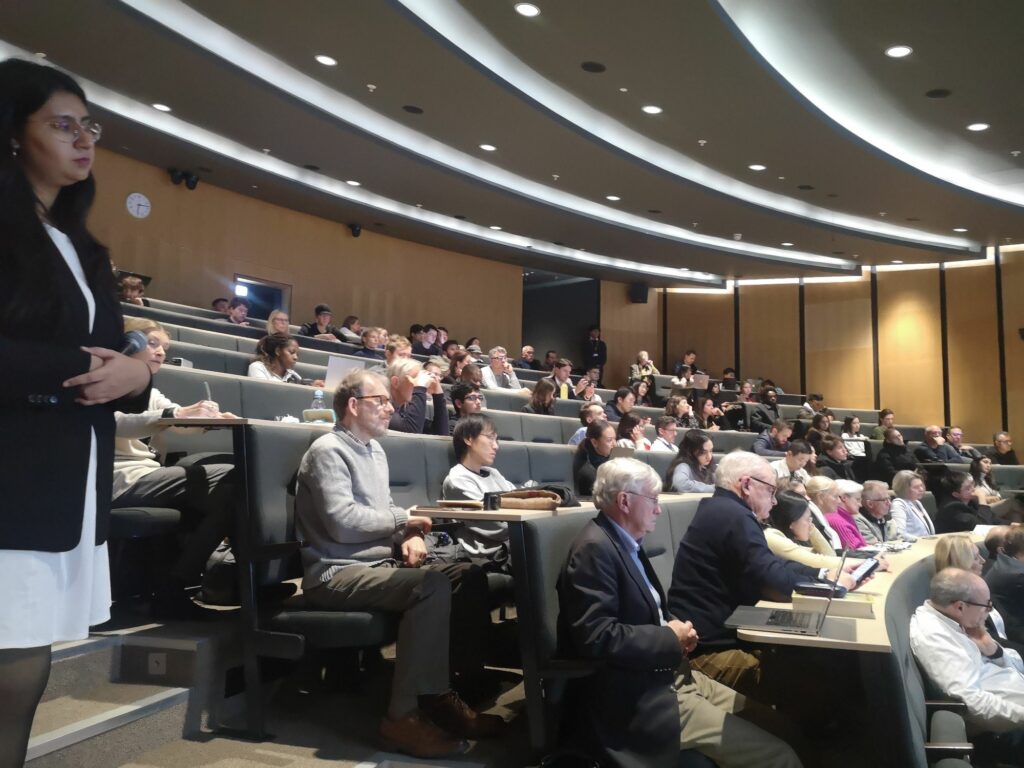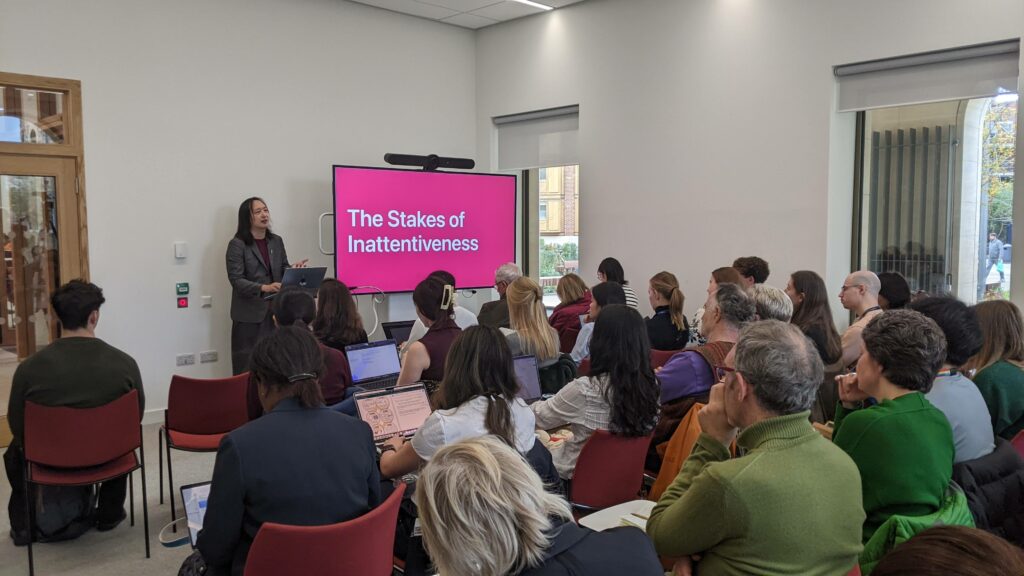I spent the summer of 1989 travelling in Ireland. I can’t now remember why Ireland, exactly. The first step was a lift to Barnsley with my parents, helping set up the exhibition 100 Years of Women’s Banners at the City Art Gallery. From there I hitchhiked north through the Lake District, stopping for the night in Keswick. In the morning I headed on to Stranraer, the cheapest route to Ireland, to catch the ferry to Larne, thirty miles north of Belfast.
I arrived in Larne late in the day and hitchhiked along the coastal road, which runs within a few feet of the sea all the way up the North Coast. I stopped for the night in a small village called Cushendall, where two of the three hotels had been blown to bits and the police station looked like an army fortress, bristling with aerials and wrapped in a high anti-rocket fence.
The coast itself is beautiful and unspoilt. According to a local tourist guide who gave me a lift, this was because the IRA had been sabotaging tourism and the economy since the 1970s, anything built was liable to be blown up. “Keeps the place liveable,” he joked darkly. The next day I continued to White Park Bay and the Giant’s Causeway, which was a bit of a disappointment, as famous tourist sites often are. But the cliffs of Benbane Head and the empty sea coast more than made up for it.
Hitchhiking toward Londonderry, I was joined by a friendly Irishman with a very thick accent in Coleraine. We got a lift from an English journalist who drove us round all the local trouble spots, with our Irish companion giving a running commentary: “That’s where Bloody Sunday happened… that’s the statue they blew up… that Post Office has been rebuilt three times…”
We were stopped at a checkpoint on the edge of the Bogside, two soldiers pointing rifles at me, more further back behind a heavy machine gun with their fingers on the trigger. They searched the boot, checked our passports, then waved us through.
Armed soldiers in the streets, convoys of armoured Land Rovers, roadblocks of corrugated iron and rusting barbed wire, concrete fortresses, bomb-damaged buildings covered in republican murals. Razor wire, rubble, neglect everywhere… all of this in what is, underneath, a normal country town: shopping arcades, council estates, grannies with shopping trolleys, mothers with kids in tow. The same as any small English town, but layered with tension and decay.
I crossed the border on foot, past a security bunker and huge concrete bollards, into the Republic of Ireland. I stayed the night in Muff, a small village just over the border, where I was offered a job as a “granny-minder” in the local hostel. She was an interesting woman, she remembered the first trans-Atlantic plane landing next to her cottage, but the repetition of dementia was too much for me.
I hitchhiked across to Donegal town, my first proper glimpse of the west coast, and then right out to the Atlantic. Rugged, deserted. I stayed just outside the small village of Kilcar, visiting the Celtic tombs and monoliths of Glencolumbkille, overlooking a quiet bay and the open ocean. At a tiny independent hostel that also doubled as the village shop, I was welcomed with tea, cake, open friendliness, the smell of a peat fire, and the chatter of a group of Germans.
After an Irish music session at the pub, I wandered down to the beach around midnight. No moon, pitch black, lit only by the stars. Ahead of me I saw what looked like a sack blowing in the wind. As I got closer I heard heavy breathing. The “sack” grew a white face and froze. I stopped dead in surprise. The vague black shape split into two large animals with white stripes across their faces. They stepped toward me, snorting loudly, then turned and bolted across the road, shaking the ground as they ran into an overgrown field. Two badgers, huge ones, materialising out of the dark. Quite a surprise to meet at midnight.
Down at the beach I saw phosphorescent waves for the first time, sparkling blue specks of light with each retreating wave. I would see this often later, from the bow and wake of the boat crossing the ocean.
I spent days exploring the empty landscape, getting lifts from peat cutters on lonely moors and locals who would stop even when I wasn’t hitchhiking. Children by cottages would stare with wide-eyed curiosity before giving directions with shy smiles beneath mops of curly brown hair.
Hitchhiked round to Sligo, arriving at midday with a strange feeling. After the magical tranquillity and emptiness of Donegal, it felt like I’d stumbled into sin city rather than a quiet Irish university town. Took the inland road to Galway, no memories of that stretch, and stayed a few days. A fantastic thunderstorm rolled into the bay: lashing rain, lightning cracking across the sky. I stood at the end of the pier with electricity skittering along the power cables overhead, total calm in the harbour below. Swans drifting, cormorants diving for fish. BOOM… CRASH… buckets of water pouring from black, tumbling clouds racing out to sea. Then silence: crystal air, a newly washed world.
Met Alic hitchhiking out of Galway. He showed me around Oranmore Castle. We sat drinking tea, talking about dolphins. He invited me back later that summer, I thought, maybe? From Oranmore to Kinvara, on the edge of the Burren, where I stayed in a deserted hostel. The next day I followed the coast to the Cliffs of Moughan, a blighted tourist spot if ever one existed. Then inland to Ennis and back toward the coast to catch the car ferry over the Shannon, stopping the night in a tiny village on the far side.
Down to Tralee and around the Ring of Kerry, high mountains, deep glens, pure white beaches, translucent blue sea. It felt more like a tropical paradise than the Western Atlantic, but I had neither time nor inclination to stop. Passed through Skibbereen to Baltimore, a small harbour village right at the southwest tip. Stayed a few days in a tidy, well-run German hostel by the sea. Went swimming in tidal pools and managed to slice my foot open badly, lots of blood, but only superficial. The water was so cold I didn’t notice until my plimsolls began squelching on the walk back.
To Cork next. While looking around the university in the evening I met some Americans who arrived back at the hostel at 2am carrying a bottle of mead and a trout they’d been gifted by a friendly fisherman in a pub. Shallow-fried trout, soda bread and mead at 3 in the morning with American stock-brokers, why not? The next day, a lively free rock concert by the River.
Hitchhiked to Rosslare via Waterford, which was pretty dull. Took the ferry to Fishguard and drifted around Wales, London, and Ollerton for a bit. Then back to Galway to take up Alic’s offer: coach from London, special deal via Holyhead and Dublin.
I stayed at Oranmore Castle, a tall, square, blocky stone tower overlooking Galway Bay, two great halls, heaps of bedrooms, dank corridors. Deserted except for the occasional visitor and me, haunting the place for the summer of ’89. Crab catching on the old stone pier, the Galway Races, helicopters overhead, champagne parties in the great hall, an art gallery under construction.
Travelled through Connemara, visited Achill Island, windswept like the Falklands, dolphins jumping close to shore. At the most westerly car park in Europe, I impressed the locals by building a church out of sand, complete with graveyard. From Oranmore I explored the Burren: grey limestone hills full of rare plants, Celtic ruins, Christian ruins, guided tours round deep caves, not really my thing.
By the end of summer the weather closed in, dark, damp. I took my leave of Alic and Leone, packed my bag, and skipped off down the road with my thumb in the air. Got a lift, for the second time, from a slightly camp gay vicar. A couple of interesting propositions and discussions later he dropped me in Athlone. From there to Dublin, where I stayed a few days before heading back to Wales.
Winter in Britain didn’t appeal. So… Mediterranean? Africa? West Indies? Anywhere south.
Europe, heading downwards. From London to Paris by train. Arrived early, dumped my bag in a locker, wandered: the Seine, the Louvre, the Pompidou, Sacré-Cœur. Slept on the roof of a multi-storey car park near Gare du Nord because my friend’s flat was full of guests. Lack of planning has its disadvantages. Walked past the security cameras as if I owned the place, climbed to the top. From the roof of the service building I watched the Eiffel Tower sparkle and Paris breathe beneath me. Very safe, police patrols cruising by every few hours. I just sat and peered down at them. Weather was beautiful so I stayed two nights.
Left Paris to hitch to Bordeaux, hoping to pick grapes, but I’d missed the harvest due to the dry summer. Hitched to Biarritz with a New Zealander. Midnight picnic in a pine forest under a full moon: sticky fruit, wine, French bread, scents of warm resin and singing crickets. Biarritz is a strange mix of Victorian Englishness and southern French style, broad beaches, rolling Atlantic surf, Australians skipping across waves on boards, watched by bronzed models.
From Biarritz I hitched alone in an English lorry to Lisbon, a day and a half across the endless Spanish plains, the scenery only changing with the next flock of mangy sheep or the next church spire. Slept in a warm, aromatic haystack.
No luck finding a boat in Lisbon. Stayed ten days, checked docks and tourist sites. Polluted, unfriendly. Took an overnight train to the Algarve with some friends and a stunningly loud peasant brass band. Wandered to the Atlantic coast near Cape Vincent, wild, beautiful, white-sand coves scented with herbs. Ate figs from the trees, swam in surf, lay on beaches. Stayed a week in a smelly old fort perched on a headland, cliffs dropping sheer into the sea. Watched lazy fish outsmart fishermen casting nets from tiny boats far below.
Hitched to Seville by a patchwork of thumb, bus, train, and finally a battered Israeli VW camper van that broke down at the outskirts. Walked through boulevards lined with heavy orange trees into the old centre. Met a Guatemalan woman who helped us find a hotel. The remains of Moorish architecture: cool, calm, civilised. Got swept into a film shoot in the old quarter, carnival scenes, dry ice, masks, prancing, flying capes.
Bussed and hitched to Gibraltar. Rain, overcast, nowhere to stay. Almost arrested for inhabiting an abandoned military bunker, saved only because the police got stuck behind a car crash. After a week of asking around the marina, I found the Danish yacht Nana, a 42′ steel ketch heading for the Canaries and possibly the West Indies. Left the next day.
Sailing across the Atlantic on Nana was… something else. Left Las Palmas with Ivor the skipper and Dagmar as deckhand. The last sight of Europe was Cape St. Vincent, where three weeks earlier I’d been sunning myself in a secluded rocky cove. We skirted the coast of Morocco cautiously, staying out of sight of land to avoid pirates. Then nothing but blue, sometimes grey, waves stretching in all directions.
Climbed to the top of the mast on a calm day, fell out of bed and cut my head open on a not-so-calm night. Nine days later we arrived in Las Palmas, Grand Canary. Sailing… what a crazy thing to do! “Cooking in a galley with a swaying stove, pots and pans flying everywhere… sauces slurping, water boiling… falling forward, falling back, what a mad idea!”
Two weeks in the marina, sleeping in a hammock swinging from the mast, making do with the peculiar charm of Las Palmas: giant cockroachs, oil slicks in the harbour, the odd beach barbecue with exploding flambé. Explored the hills and mountains by hired car, swam in a mountain lake, skinny-dipped in cold, fresh water, the sun warm, pine needles soft underfoot. Friends from the marina, hopefuls and dreamers, looked for boats.
We motored east to Tenerife, waiting for the right weather. A storm damaged the docked boats: the Nana was crushed against the quay by a Brazilian mahogany schooner, the anchor motor shattered, ropes broken, railings scratched. I spent most of the night scouring the island for discarded tires to act as fenders, the waves tossing the boat like a tiny elevator, ropes straining, snapping with bangs. Five other boats were wrecked in the two weeks, running aground or slipping anchors.
While working along cliffs east of Los Cristianos, I spotted a sail flapping on the rocks, the English yacht Yarmouth. Hurrying down luckily, nobody was trapped. Spanish Red Cross shrugged; they didn’t seem to care. When our gear box fell off while manoeuvring in the harbour mouth, the Dutch rescued us just in time. Two weeks of inactivity, swinging from the boom, playing guitars with Dagmar in the cockpit to pass the night, getting sunburnt, cooking in salty water, this became our strange rhythm.
Finally, we set off. Motoring out at dusk with a leak in the oven, a sudden decision, there was no wind but a weather fax suggested wind 200 miles down the line, and the storm might close in behind us.
Atlantic Crossing. Days of calm, then the trade winds finally picked up. Dolphins escorted us, whales breeched in the distance, flying fish arced over the deck. Surfing down waves at night, the boat lifted by thirty-foot swells, stern first, before being carried down the other side. Shooting stars streaked across the sky every ten minutes. One massive thunderstorm blackened the sky on the port side for an entire day. Other sailing boats were tiny lights against the horizon; lone sailors, obviously asleep, continued their course. Even a tanker had to be dodged, they had a terrible turning circle and would not stop.
On becalmed days, we swam. No land for a thousand miles, three miles deep beneath us. Overboard dives from the emergency box, careful of sharks. Every few days dolphins swarmed the bow, leaping, skimming, glinting in rainbow hues under the sun. The days were the same, sun-warmed bucket showers, peeling potatoes in salty water, washing clothes in salty water, everything salted, everything alive. The smell of the boat: plastic, fabric, wood, damp sea smell, sun blazing overhead.
After the 25-day crossing, Christmas Eve brought Barbados. The trees appeared bright- colerd off the starboard bow, a small brightly-painted fishing boat bobbing between the troughs. Anchored in a bay among other yachts, we motored into port to register with customs and immigration.
The West Indies were touristy but friendly. Stayed for Christmas and New Year in a cheap room behind a beach bar in Bridgetown. Shared it with a friend: one of us paid, the other hid under the bed at knocks on the door. Swam twice daily, got drunk on free rum at parties, travelled the island by bus, slept on a deserted beach for a night, climbed a swaying coconut palm for fresh milk, ripping the bottom out of my only spare trousers in the process. Bus rides back to Bridgetown drew strange looks: the only white person on board with a massive hole in the back of my trousers and no underpants. Had to smile.
No safe passage by boat appeared for onward travel, so I imposed on a friend from Las Palmas, Andrew, to take me to Granada in a 31’ English boat called Emma, participating in the ARC race to raise money for disabled sailors on tall ships. Incredibly seasick all the way, but Granada, tropical jungle overgrown with wood and corrugated iron houses, abundant fruits, flowers, and exotic birds, was worth every heave. Hitchhiked through mountains to the lake at the top, over the island, through banana plantations, nutmeg trees, dense jungle, a place both beautiful and strange.
Eventually, I found Nana anchored again in St. George’s harbour. Reunited with Dagmar and Nils. The Caribbean was stunning, but dull and expensive. Bought a flight ticket to London, with a stopover in Miami.
Florida, Orange Groves, and the American South. Landing in Miami, I was immediately struck by the emptiness, a soul-less vacuum of blacks and poverty-stricken whites. Found another Englishman, Berny, in the hostel. Hired a car and drove north to Orlando in search of orange-picking work. Frost had devastated the harvest; no luck this far up. Found another Englishman, Andy, and together the three of us decided to head south where the frost had been less severe.
Hitchhiked back to Avon Park. Met up in the library, shared a motel room, cooking on a camping stove in the middle of the floor. Next day, orange-picking under a Mexican boss in the grove, ten hours, earned $4 after deductions, argued with the Mexicans about tax and work permits, and that was the end of that work.
We splashed out on our meagre earnings at the beach, hoping for carpentry work, hitchhiking to Fort Pierce. We crashed on the flat roof of an abandoned gas station by the beach, mosquitoes, alligators, minor worries. Then, by chance, we were invited to stay for two weeks with a college family in Wotchuler: Disney World, affluent conservative American life, sunshine, absurdly clean streets. Back to Orlando, trying to find a way to California. Almost gave up before hiring a car.
Cross-Country Chaos. Drove a hire car to New Orleans with two girls from South Wales, me, Berny, and Andy. Stopped by police, $164 speeding fine for 70 in a 55 mph zone. Didn’t pay. Zooming out of the state, we drove through the desert, sleeping in a rolled-up sleeping bag, stopping once in a motel, the stars intense above us. Camped on the Rio Grande, scorpion as dinner companion, Navajo reservation in the middle of rocky scrub desert. Denver, crash in a car park, Indian cave dwellings, Painted Desert, Monument Valley — over the Rocky Mountains, across the Midwest, small-town America in all its exhausted glory.
Sat on a rusting iron girder bridge over a river, beavers playing, an overgrown railway nearby. The endless nights of small roads lit only by headlights, dark pubs, dead-eyed Americans, a bleak, fascinating wilderness.
New York City. Arrived New York next day. After dropping the hire car in Mount Kisko, me and Berny hitchhiked with a crazy guy in a giant American sports car doing 90 mph, weaving through traffic, squealing round stoplights, eventually dumped in the Bronx. Subway, chaos, flashing lights, sirens, smells. Stayed just over a week: Central Park, Manhattan, Empire State, Staten Island ferry, Statue of Liberty, Greenwich Village, Chinatown, a city alive and alinating.
Climbed rooftops for a better view, almost arrested as a terrorist at JFK for exploring too freely. Flight to London: six boring hours, a dull contrast to the wildness of America.
Back to England. Civilized at first glance, small, homely. But the impression wears off quickly. Hitchhiked to Wales over a day and a half, missed an arranged lift with my mother from Greenham Common Peace Camp. Had to hitch 250 miles by six in the evening, finally stopping past Carmarthen in a friendly pub. Signed on the dole in Aberystwyth, May 25th, 1990, nothing had changed.
Ireland, Oranmore Castle, Full Circle. Finally, back to Ireland, Oranmore Castle, completing the circle I had started over a year earlier. Stayed three weeks in time for Bill King’s 80th birthday party. Then back to Wales, onward to a job in London. Winter in Britain, not an appealing idea.
What next? Japan? South America? Who knows. The horizon always calls.
Long version https://hamishcampbell.com/a-year-long-summer/
#Traval #hamishcampbell










